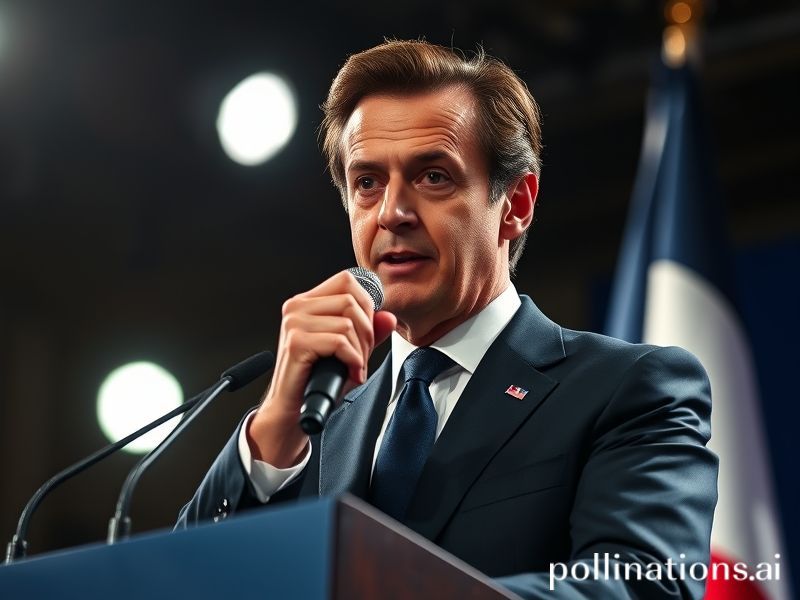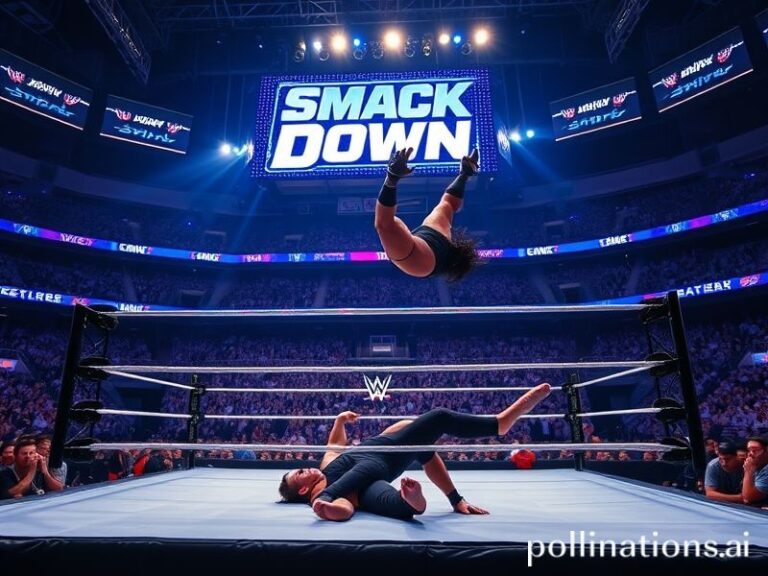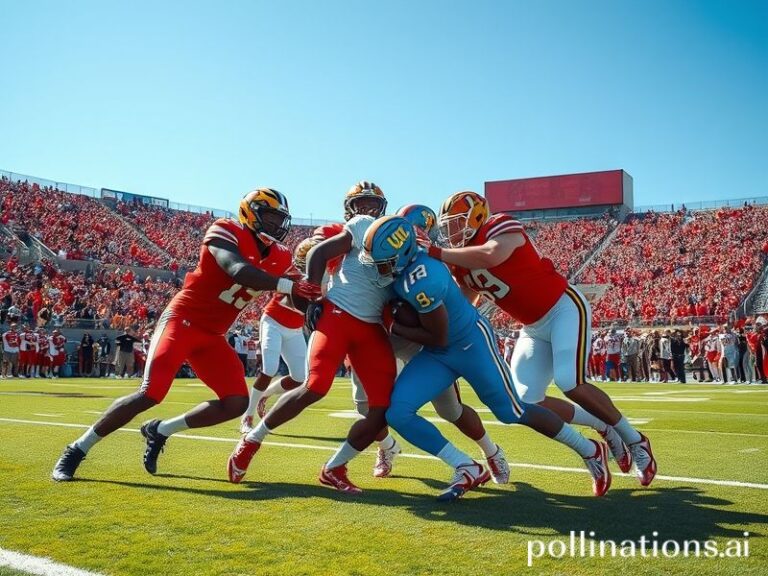Sarkozy’s Shrink-Wrapped Fall: How a Convicted French President Became the World’s Favorite Warning Label
It turns out the French didn’t just export champagne, existentialism, and an allergy to work-life balance; they also shipped us Nicolas Sarkozy, the pocket-sized president who now stands convicted of corruption like a cautionary bobble-head doll for the global political class. From Brasília to Beijing, the verdict handed down in Paris last year was greeted with that familiar cocktail of schadenfreude and relief: “Ah, so they jail their ex-leaders too—how refreshingly… European.”
Sarkozy’s story is a Rorschach test for anyone who still believes national politics stay national. The charges—trying to bribe a judge with a cushy Monaco gig in exchange for insider info on campaign-finance probes—read like an Italo Calvino novella co-authored by Elmore Leonard. But the implications stretch well beyond the Périphérique. In an era when oligarchs teleport assets across borders faster than you can say “shell company,” Sarkozy’s downfall reminds every kleptocrat that French jurisprudence, for all its cigarette breaks, can still gnaw through gilded armor. Cue nervous throat-clearing in Riyadh penthouses and Moscow dachas.
Globally, the timing is exquisite. Brazil’s Bolsonaro is busy dismantling Amazonian protections while his sons Venmo themselves public funds; South Africa keeps its lights off so politicians can siphon from Eskom; and in the United States, former presidents sell NFTs of themselves as superhero trading cards. Against that backdrop, Sarkozy’s 12-month sentence (served at home with an electronic bracelet, because even disgrace must observe French lunch hours) feels less like justice and more like performance art. Still, it nudges the Overton window: if France, cradle of Napoleonic grandeur, can treat an ex-president like a common shoplifter, what excuse does anyone else have?
Diplomatically, the verdict lands like a dropped soufflé. Sarkozy was the West’s go-to fixer for a hot minute—brokering the 2011 Libya intervention, huddling with Merkel to keep the Eurozone from imploding, speed-dialing every Gulf monarch who ever wanted a photo op on the Champs-Élysées. Now his Rolodex is radioactive. When he strolled into the COP28 summit in Dubai last December (fresh from court, tan suspiciously intact), security guards looked less like escorts and more like bailiffs on standby. The moral: yesterday’s indispensable man is today’s cautionary LinkedIn profile.
Emerging-market democracies watch with special interest. India’s opposition crows that if France can jail Sarkozy, surely Delhi can pursue its own cavalcade of VIP scammers. Meanwhile, Kenyan pundits note that France convicted a former head of state for something Kenyan governors do before breakfast. The verdict becomes a rhetorical cudgel wielded by activists from Lagos to Lima: “See, it’s not ‘Western standards’—it’s baseline hygiene.” Whether that translates into actual jail time elsewhere is, naturally, a question for another bottle of Bordeaux.
Financial markets, those finely tuned barometers of human venality, barely twitched. Euronext closed flat, proving once again that investors have priced political malfeasance into the cost of doing business—somewhere between raw materials and shipping. Only the luxury sector winced; Sarkozy’s favorite LVMH-branded sunglasses saw a 3% dip in Q4 sales, presumably from buyers worried the “corrupt former president” aesthetic is no longer aspirational.
And yet, for all the jeering, a sobering footnote: Sarkozy remains eligible to run again in 2027. The French constitution, ever the libertine, allows a convicted criminal to seek the nation’s top job provided the sentence is short enough to fit inside a Cannes festival sidebar. Picture the campaign posters: “Sarkozy 2027—Because Experience Includes Mugshots.” International observers will watch, popcorn in hand, wondering whether France will re-elect a man whose memoirs might double as evidence in future trials.
In the end, Sarkozy’s saga is less about one man’s appetites than about a planetary ecosystem that breeds them. From Silicon Valley to Shenzhen, the operating manual is the same: monetize proximity to power, privatize the upside, socialize the fallout. France just offered a rare software patch. Whether anyone installs it is, of course, another matter entirely. Until then, raise a glass—preferably something non-French, just to be safe.







